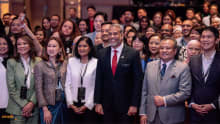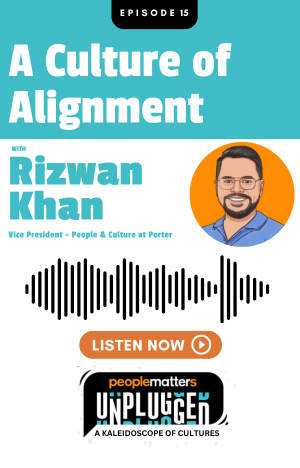Employees feel HR teams are ineffective

In a study to gauge how modern workers perceive the role of their HR teams, the company called Hibob found that almost half of today’s workforce (48%) is indifferent about the role of HR in their company, and 18% believe that HR takes away from their overall experience at work. These findings show that the structure and function of current HR teams need to be revamped to fit the modern workforce.
As companies grow and the world of work continues to transform, it is imperative for business leaders to focus on creating strong cultural foundations. The majority of people surveyed (77%) said that corporate culture is extremely important, and 70% also believe HR can do a better job of fostering it. With flexible work schedules and dispersed workforces, the traditional workday and concept of a work/life balance are shifting. Employees must feel comfortable with their coworkers, yet Hibob’s study indicated that employees consider less than 15% of their coworkers to be friends. To help mitigate turnover, HR teams and managers must prioritize team-building, as friendships help with collaboration, which inherently increases productivity.
“HR teams have a lot of work to do before they fully gain employee trust, but with the right data and tools, they can work closely with managers to become cultural leaders,” said Ronni Zehavi, CEO of Hibob.
Since most employees find their HR teams to be ineffective at creating culture, companies must empower and invest in their HR teams by giving them the tools they need to better connect with employees. While every worker and organization is different, there are several broad initiatives companies can utilize that will provide HR teams greater with influence over company culture.
Consider candidates’ emotional intelligence (EQ) during the hiring process. HR leaders and team managers must have high emotional intelligence to assess employees’ happiness and detect signs of burnout or stress. HR teams need to be approachable and effective; managers who lack these skills will not be able to effectively inspire and lead employees.
Empower HR teams to build out employee wellbeing programs and offer impactful perks. The amount of vacation time a company offers is a key consideration factor for nearly half of job seekers (45%), but the other non-salary benefits that employees want can vary from one organization to another. Companies should encourage their HR teams to connect with employees directly to learn about the perks they are looking for so they can introduce programs that matter. By showing employees that their feedback is being heard, HR teams will appear more credible and trustworthy.
Encourage HR leaders to create unique company experiences that employees will not find anywhere else. While the culture for each tribe within a company is primarily led by that team’s managers, a strong organizational culture is important for retention and overall satisfaction. HR teams should establish unique organizational traditions to create a sense of togetherness and belonging among employees.
Facilitate collaboration between HR teams and team managers to implement a strong employee experience initiative. It is common for employees to engage with their HR teams only during the hiring process, for annual reviews, and when they are leaving a company. Setting up more meaningful, regular check-ins will inspire bonds and open communication between employees and HR managers.
Consider rebranding the HR team. Titles like “HR Manager” can seem old-fashioned and corporate, whereas titles such as “Chief People Officer” or “Chief Happiness Offer” will set the tone for the role of a modern HR team. By bringing in new HR talent and reimagining traditional HR titles, companies can begin to evolve perceptions of the role of HR.
The national survey was conducted online by Pollfish on behalf of Hibob on May 16, 2019. It includes responses from 1,000 employees ages 18 and older from the United States.














